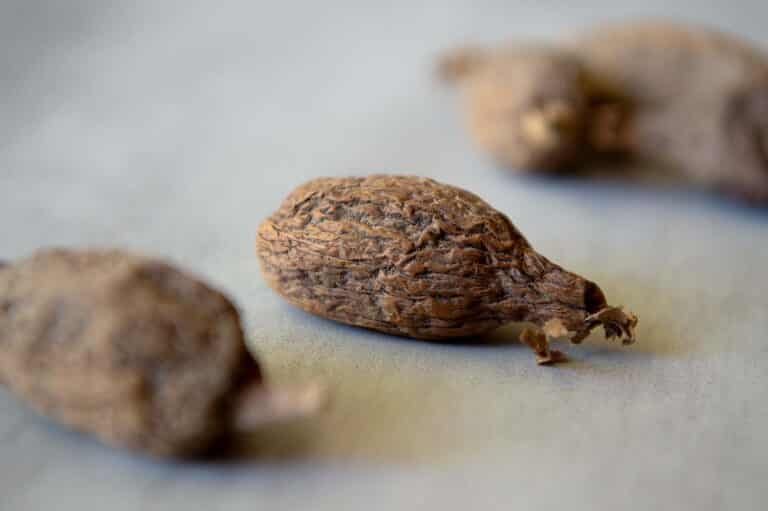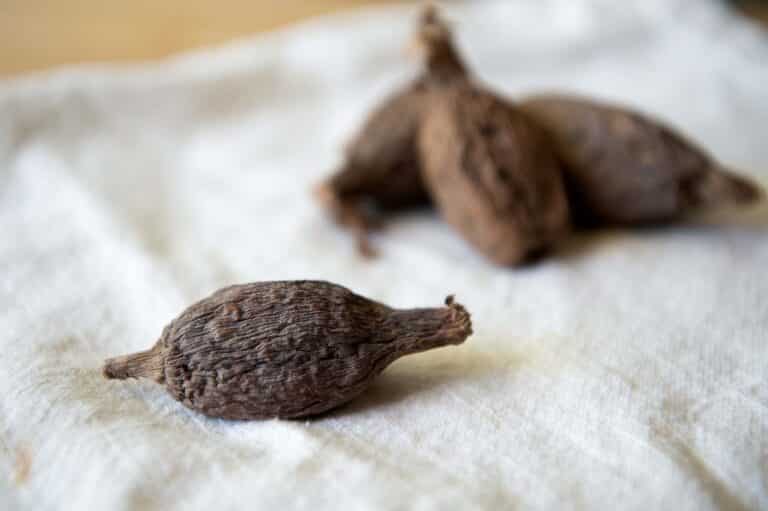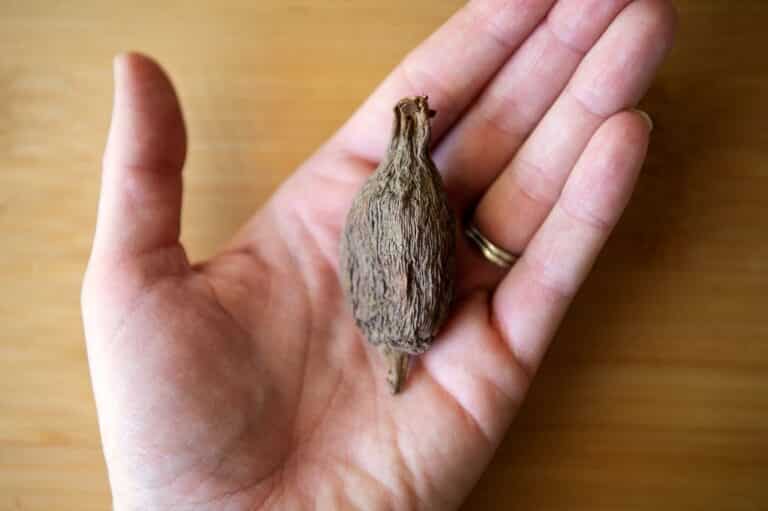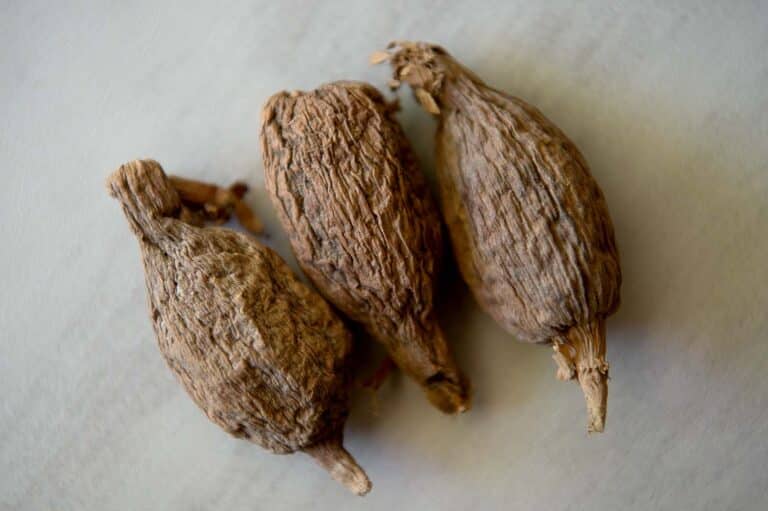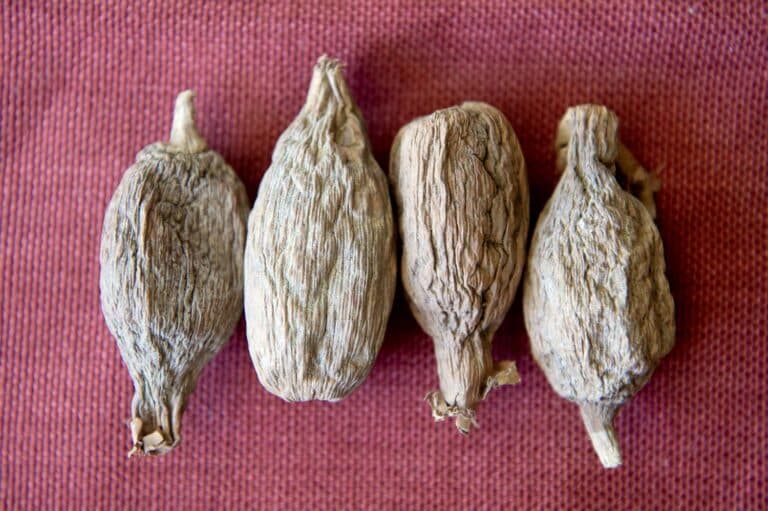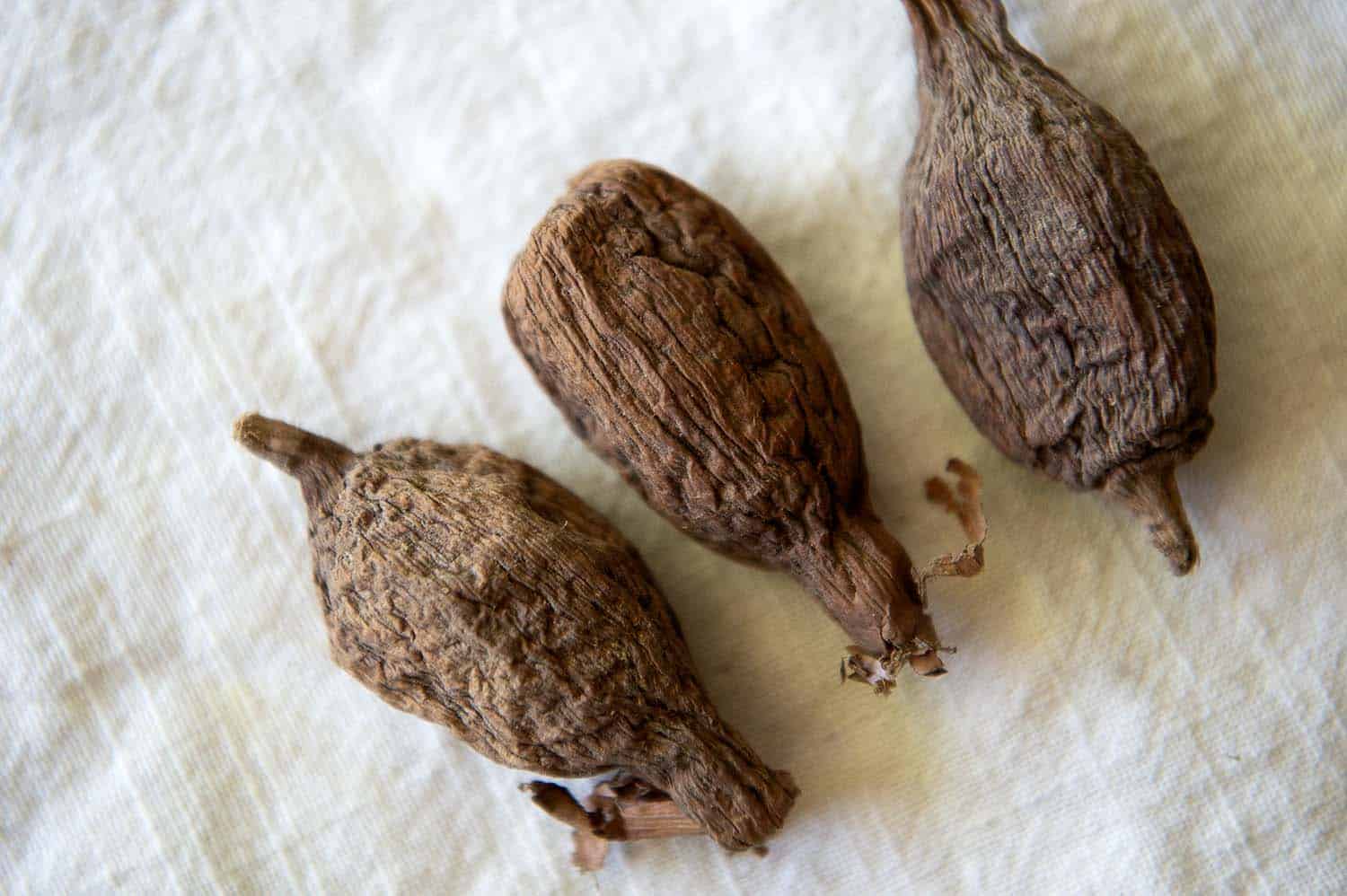
Alligator Pepper (Aframomum melegueta)
Alligator pepper, often called grains of paradise, is a popular spice native to West Africa, known for its pungent, peppery flavor. The seeds are encased in pods that resemble the bumpy skin of an alligator, which is how it got its name. It is commonly used in both culinary applications and traditional rituals throughout the region.
- Scientific name: Aframomum melegueta
- Family: Zingiberaceae
- Genus: Aframomum
- Kingdom: Plantae
- Order: Zingiberales
History
The use of alligator pepper dates back centuries in West Africa, where it has been both a spice and a component in various cultural and ceremonial contexts. It was once so valued that it was used as a form of currency. The spice made its way to Europe during the spice trade era, where it was used as a cheaper alternative to black pepper but has remained a staple in West African homes for its unique flavor and purported health benefits.
Benefits
Alligator pepper is rich in anti-inflammatory compounds and antioxidants, which can help reduce oxidative stress and may support immune health. It has been traditionally used in African folk medicine to treat everything from gastrointestinal issues to malaria and even as an aphrodisiac. Modern research into these properties is still ongoing, but the spice continues to be a valuable component of traditional herbal medicine in the region.
Substitutes
If alligator pepper is unavailable, the best substitutes would include:
- Black pepper or white pepper for a basic peppery note.
- Cardamom or grains of paradise (from the same family) can mimic the aromatic and spicy qualities.

